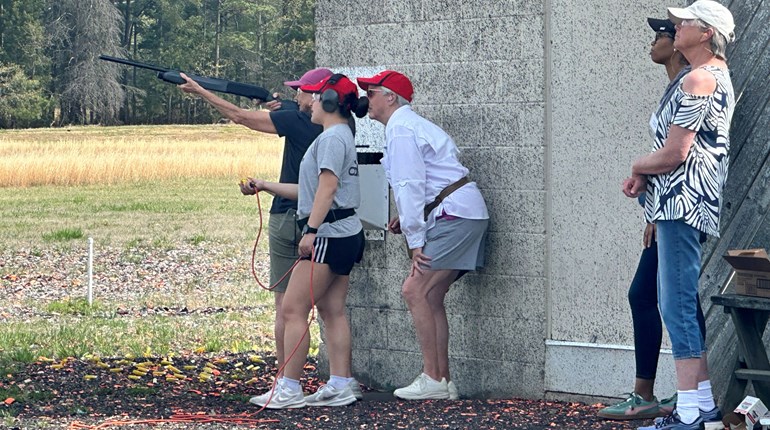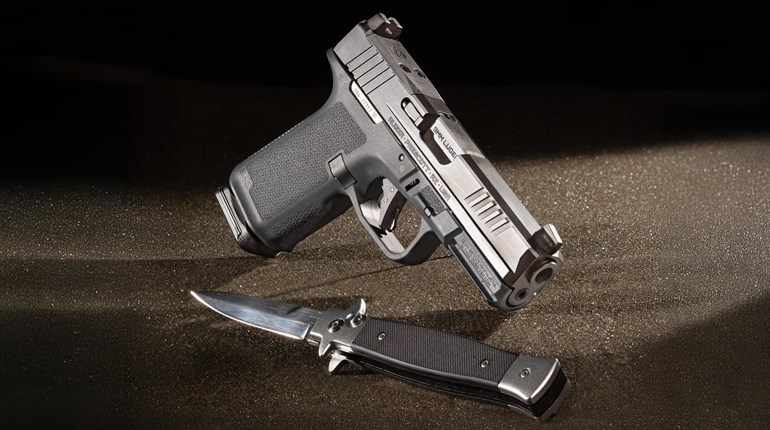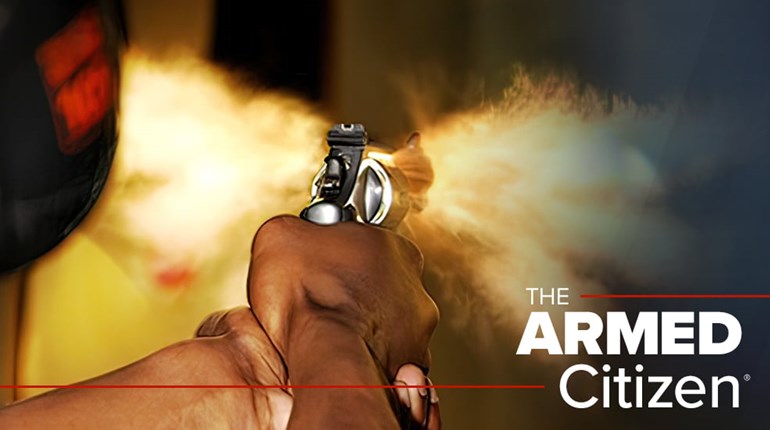
Mainstream media outlets scoffed when NRA Executive Vice President Wayne LaPierre popularized the catchphrase “The only thing that stops a bad guy with a gun is a good guy with a gun” after the Newtown, Conn., school shooting. But sometimes that’s what it takes.
On Sept. 25, 2014, Alton Nolen appeared at the plant where he worked, though he was on suspension. He walked up behind another employee, pulled out a butcher knife and drew it across her neck.
“We are in an environment today where some believe … that the need for individual personal protection is somehow diminished—that the basic right we have as humans to protect ourselves can be left to the state.”
Bystanders tried to stop him, trial testimony shows, with the plant manager punching Nolen in the face and the plant manager of operations kicking him under his chin.
Those confrontations didn’t work—not until Mark Vaughan, then the chief operations officer of Vaughan Foods went to his car, grabbed his rifle, and shot the perpetrator.
It ended up being an armed citizen account that actually made it to national news outlets, partly because the good guy with a gun in this case serves as a reserve deputy. But Vaughan is more than just a part-time deputy. He is an award-winning law enforcement officer and a firearm instructor—and part of his calling when he wears that hat is to work with the Oklahoma City Gun Club when it hosts its annual Women on Target event, which is coming up in September. He is also a firm defender of the Second Amendment.
“We are in an environment today where some believe … that the need for individual personal protection is somehow diminished—that the basic right we have as humans to protect ourselves can be left to the state,” Vaughan said in support of his advocacy for our right to keep and bear arms. “As dedicated as our law enforcement is, it’s not possible for them to provide such immediate protection in the majority of incidents.”
In his capacity as a deputy, something he has been doing since 2010, he has seen a distinctive attitude among criminals. Where it would seem logical that getting caught and serving time would be the top fear, these days burglars and thieves are more concerned about coming up against an armed homeowner than about facing anything the justice system throws at them. Vaughan attributes that, in part, to fiscal realities in many jurisdictions. “In many parts of the country, due to growth and constrained local and state budgets, we are seeing convicted violent offenders back out on the streets sooner and fewer law enforcement officers,” he said.
So, yes, he believes that an armed citizenry serves as a deterrent to crime. “[And] I find repulsive that the media … sometimes refer to our ‘gun culture’ here in the U.S.—I’d rather characterize it as our ‘freedom culture.’”
Indeed, what greater freedom is there than the inalienable right to protect yourself and your loved ones from harm? And even though inalienable, by definition, means something that can’t be taken away, the misuse of firearms by criminals has put law-abiding gun owners in America in a far more difficult position of having to defend their exercise of this right.
“[And] I find repulsive that the media … sometimes refer to our ‘gun culture’ here in the U.S.—I’d rather characterize it as our ‘freedom culture.’”
All that said, Vaughan also stands by the notion that if you’re going to have a firearm—either in your home or to carry—you need to take on the responsibility of knowing how to use it safely and under the right circumstances. The NRA has been training law-abiding citizens on the safe and responsible use of firearms for more than a century.
“You know, I believe that the essential right secured by our Second Amendment carries with it the responsibility that one maintains proficiency with firearms,” Vaughan said. “Just as in other provisions laid out by our Founding Fathers, it is our obligation as citizens to know what we are doing—to act responsibly, whether that be exercising our right to vote or in protecting ourselves with a firearm.
“When we’re faced with a immediate violent encounter, our mind rapidly looks through its ‘files’ of previous solutions—the more training and scenarios we have in our ‘files’ the faster the mind will provide the best solution in times of intense stress.”
It also helps in terms of giving you a mental advantage, oftentimes enough of one that the threat will de-escalate simply on the basis of your preparedness and steadfastness in response.
So, look for training options that will help you to develop the right skills, he said, citing the NRA Carry Guard program as one that offers a comprehensive approach that is available to everyone.
Indeed, his post-incident evaluation of the Vaughan Foods attack convinced him that mental preparedness was a key factor in his success. “I had run similar scenarios in my mind many times. If your mind is seeing an occurrence from the context that it has seen it before, the response and instructions your mind delivers in that situation will be faster and more precise.” And scenario-based training—like Carry Guard—helps you get to the point where you can do that, he said.


































